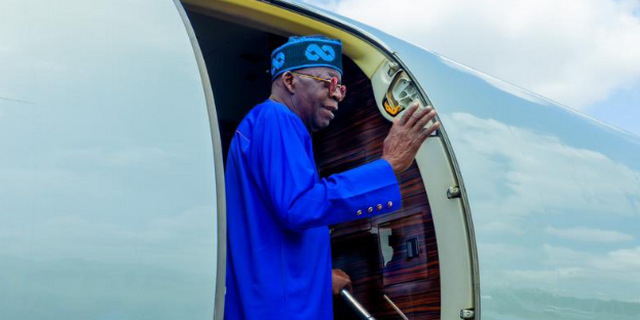President Bola Tinubu is set to leave Abuja on Saturday, July 20, for Accra, Ghana, to attend the Sixth Mid-Year Coordination Meeting of the African Union (AU), Regional Economic Communities (RECs), Regional Mechanisms (RMs), and AU Member States. This significant gathering aims to align and coordinate the implementation of the continental integration agenda.

In his capacity as the Chairman of the Economic Community of West African States (ECOWAS) Authority of Heads of State and Government, President Tinubu will address the meeting on the status of regional integration across various areas in Africa. His speech will highlight the achievements and challenges encountered in West Africa since the last meeting held in Nairobi, Kenya, in July 2023.
Chief Ajuri Ngelale, the presidential spokesman, issued a statement explaining that President Tinubu will present the ‘2024 Report on the State of the Community’. This report will focus on critical areas such as peace, regional security, governance, economic integration, humanitarian and social development, energy, mines, and agriculture. The report aims to provide a comprehensive overview of the progress made and the hurdles that remain in achieving regional integration and development goals.
The AU meeting will be convened under the theme of the year 2024: “Educate and Skill Africa for the 21st Century.” This theme underscores the importance of education and skills development as foundational pillars for Africa’s future growth and development. By focusing on education and skills, the AU aims to prepare the continent’s youth for the challenges and opportunities of the 21st century, fostering a skilled and knowledgeable workforce capable of driving sustainable development.
The Mid-Year Coordination Meeting, conceptualized in 2017, serves as the principal forum for the AU and the RECs to align their work and coordinate the implementation of the continental integration agenda. It has replaced the June/July summits, streamlining efforts to achieve more effective collaboration and integration across the continent.
In July 2023, President Tinubu, newly elected as the Chairman of ECOWAS, delivered his maiden speech at the AU Fifth Mid-Year Coordination Meeting in Nairobi, Kenya. In his address, he emphasized Africa’s strength and the need for unity to overcome common challenges. His call for unity and collective action resonated with many leaders, setting the tone for his tenure as ECOWAS Chairman.
The agenda for the meeting in Accra includes evaluating the AU’s early warning and conflict prevention mechanisms and promoting cooperation among regional economic communities to accelerate integration. These discussions are crucial for addressing the ongoing challenges of conflict and instability in various parts of the continent. By enhancing early warning systems and conflict prevention strategies, the AU aims to create a more stable and peaceful Africa, conducive to development and prosperity.
At the conclusion of the meeting, a declaration will be adopted, outlining the commitments and actions agreed upon by the participating countries and organizations. This declaration will serve as a roadmap for the next steps in advancing regional integration and development across Africa.
President Tinubu will be accompanied by senior government officials, reflecting the importance of this meeting for Nigeria and the broader West African region. His participation underscores Nigeria’s commitment to regional cooperation and integration as a means to achieve sustainable development and improve the lives of its citizens.
The participation of President Tinubu in the AU Mid-Year Coordination Meeting highlights Nigeria’s pivotal role in promoting regional integration and cooperation. As the Chairman of ECOWAS, Tinubu’s leadership is crucial in addressing the complex issues facing West Africa, including security challenges, economic disparities, and governance concerns.
The focus on education and skills development aligns with Nigeria’s national priorities, as the country grapples with high unemployment rates and a burgeoning youth population. By investing in education and vocational training, Nigeria can equip its young people with the skills needed to thrive in a rapidly changing global economy.
Furthermore, the emphasis on early warning and conflict prevention mechanisms is particularly relevant for West Africa, which has experienced numerous conflicts and political instability. Strengthening these mechanisms can help prevent the escalation of conflicts and promote peace and stability in the region.
President Tinubu’s participation in the AU meeting represents a significant step towards fostering regional integration and addressing the continent’s most pressing challenges. Through collaboration and collective action, African countries can achieve sustainable development and create a brighter future for their people.




